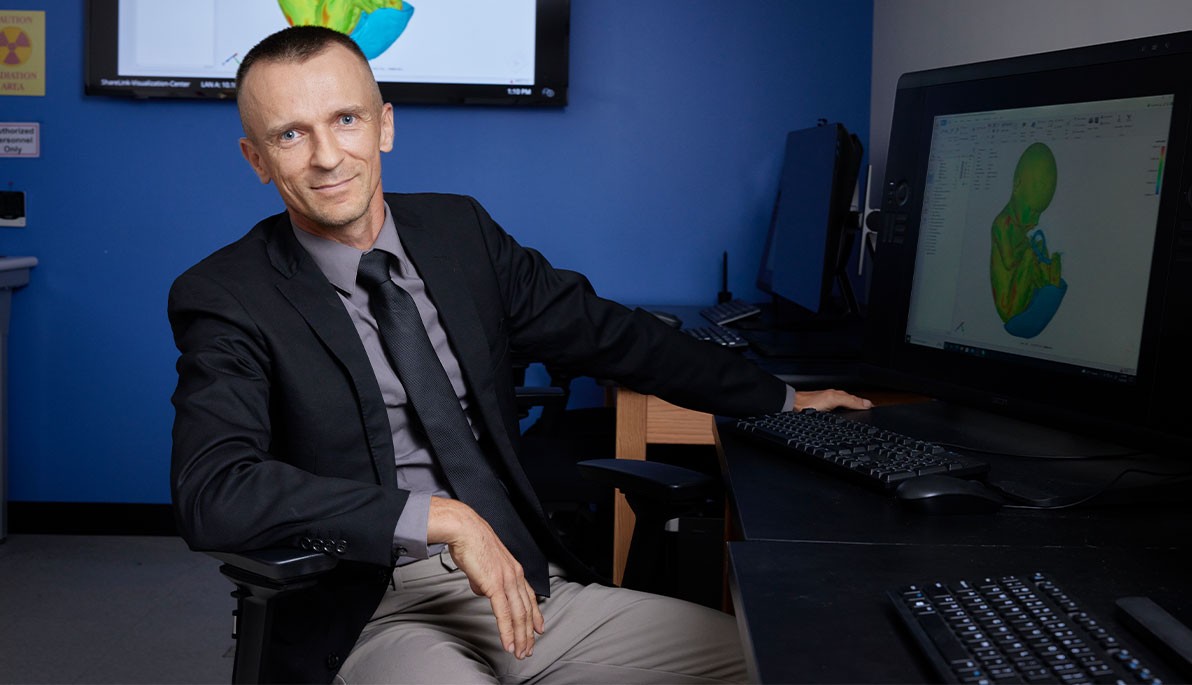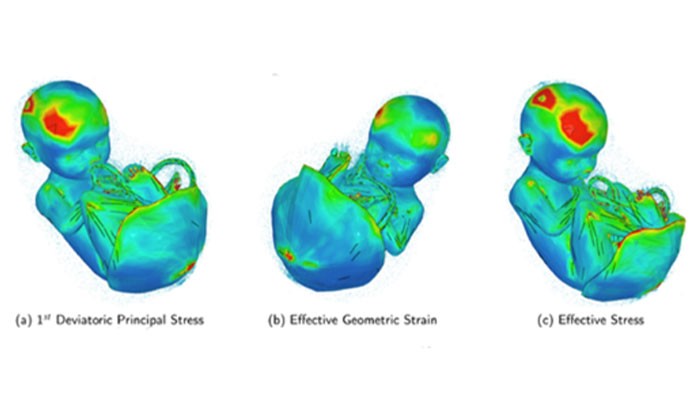
Visualizing How Military Blasts Impact Unborn Babies
July 25, 2023
Pictured: Assistant Professor Milan Toma
A recent study by College of Osteopathic Medicine (NYITCOM) faculty and alumni provides new insight into how military blasts can injure unborn babies (fetuses) and how the amniotic fluid surrounding the fetus may provide protection. The findings, which were published in the journal Injury, could help doctors better assess fetal injuries and inform the development of future safety devices.
Pregnancy-related trauma is one of the leading causes of morbidity and mortality in pregnant women and their unborn babies. Recently, military conflicts in Eastern Europe and the Middle East, where there have been documented cases of airstrikes targeting maternity hospitals, have led scientists and medical professionals to consider how the forces of a military blast could impact unborn children.
Now, researchers, led by biomedical engineer and NYITCOM Assistant Professor Milan Toma, Ph.D., have used elaborate 3-D models to simulate the impact of an explosion beneath a motor vehicle. The models accounted for real patient-specific geometries and fluid-structure interaction in spaces between the inner lining of the uterus and fetus, placenta, and umbilical cord.

Because the fetus was positioned with its head facing down and exposed to a simulated explosion underneath the mother's womb (a military blast under a car), more stress/strain (shown in red) occurred around the skull.
Their findings showed that amniotic fluid is crucial in protecting the fetus from trauma. While the simulated explosion subjected the outside of the uterus to multiple acceleration changes, the fetus (inside the uterus) experienced lesser acceleration changes. The models also showed that because the fetus was positioned with its head facing down and exposed to an explosion underneath the mother’s womb, the area around the skull sustained more stress.
The study was conducted in collaboration with Jonathan Arias (D.O. ’23) and Gregory Kurgansky (D.O. ’23), former NYITCOM students who have since completed their studies and advanced to residency programs. Other collaborators included Ong Chi Wei, Ph.D., from Singapore’s Institute of High Performance Computing, and Rosalyn Chan-Akeley, M.D., an OB-GYN affiliated with Lang Research Center at New York-Presbyterian Hospital Queens.
More Features

An Alumnus’ Commitment to the Environment
As an energy management graduate from New York Tech’s Vancouver campus, Jasdeep Gulati (M.S. ’22) is highly invested in educating people about environmental and climate sustainability.

Vancouver Faculty Win University-Sponsored Research Awards in New Program
The new Global Impact Research Grant (GIRG) program has been developed to keep Vancouver-based faculty connected to faculty and research projects being conducted on the university’s New York campuses.

Studying Climate Change One Degree at a Time
Junhua Qu (M.S. ’24) began her collegiate journey in Beijing. But, her interest in climate change took her to New York Tech’s Vancouver campus to study energy management.
